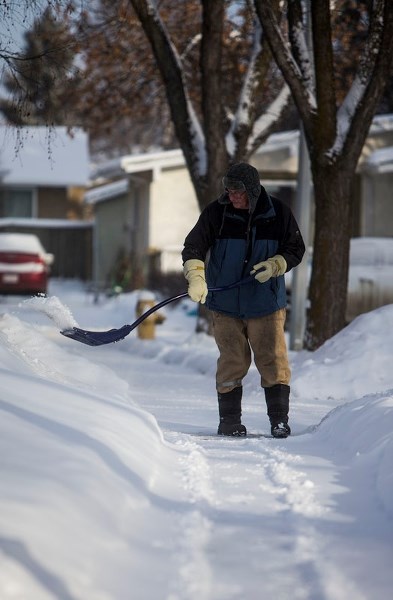To sell or not to sell? Seniors may revisit this question every time it snows. Is it better to take all that hard-earned home equity, which is just sitting there unused in a bank somewhere, so you can then head to Arizona or at the very least to a condo where someone else takes care of the white stuff? Or should you stay in the comfort of the home you have loved for most of your adult life, where you like to grow roses in the summer and where the cost of living is fairly minimal because the mortgage is paid?
The answers are different for everyone and depend on age, on health and on financial security.
“I find most people move in stages,” said Re/Max realtor Mark Cassidy.
The first stage may be to a townhouse, where someone else does outside maintenance such as snow shovelling. The advantage of a townhouse as opposed to a condo-apartment is it may still have a little yard where you can putter in the summer. Townhouses are more like single-family dwellings because they don’t have neighbours on all sides, as might happen in an apartment condo.
Most townhouses are attached two-storey dwellings, complete with basements. Most apartment-style homes have elevators, Cassidy said and the lack of stairs may be the deciding factor for those who are wishing to make a change.
“If there is no elevator, many aging baby-boomers won’t find a two-storey townhouse conducive to their needs, but at the same time, moving to an apartment can be quite an adjustment if you’ve lived in a single-family dwelling,” Cassidy said.
Those who choose to move may wish for a bungalow-style condo with amenities equal to or better than what they have already.
As a rule of thumb, two-storey townhouses tend to cost less than bungalow-style or apartment condos because it costs less to build the same square footage on two levels.
The Edmonton Real Estate Board lists the median selling price of a St. Albert single-family dwelling last month at $432,000. The median price for a St. Albert condo (only seven sold in December) was $215,000. So theoretically some cash may be realized from the sale of the family home but there is a wide range for condos. At the lower end are condos for less than $250,000 but at the upper end, some elegant, posh condos are priced up to $800,000.
Every condo or townhouse will have condo fees associated with it, which, depending on the unit, may amount to a few hundred dollars or up to $700 per month.
Condo fees are not fixed, and they can go up.
“You must be sure to get a professional to check the condo association’s reserve fund. Of course, the condo may need a new roof but you have the same risks in your own home,” said Brittany Heinrichs of TMG Mortgage Group.
If the prime reason to move is to downsize and therefore to realize some cash from the equity of your home, there may be other options, including getting a line of credit from the bank or a reverse mortgage.
The difference is in how the interest is paid to the lender.
You must qualify to borrow against your home for a line of credit. A reverse mortgage may be easier to qualify for, but you must be at least 55 years of age or older.
With a line of credit, you pay the interest every month. With a reverse mortgage, the interest is paid when you die or when the house is sold.
“If you get a reverse mortgage, be sure to ask what the real cost will be after interest is compounded,” Heinrichs stressed.
So back to that January snow. Before you make it the only reason for moving, it may not be that hard to get rid of it.
“You could still stay home and enjoy your present lifestyle if you simply pay a snow-removal company to shovel. Maybe it will cost you $200 a month for snow removal. That’s still cheaper than condo fees,” Heinrichs said.




